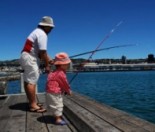Life
Love
Living
Learning
Without one there are none of the others. Our bodies, hearts and minds connect each of us to ourselves, others and the world through love, life and learning. We are living life fully when we embrace our natural urges to experience and engage in love and learning.
The foundations of our view of the world are laid down in our earliest months and years, whenever we feel loved and safe and open to learning. When we feel assured of our safety and value we effortlessly learn to move, to talk, to connect with others, to explore the world we find ourselves in. These foundations then support our continued learning throughout our lives.
Life is about learning, and our brains have been beautifully designed to take in enormous amounts of the learning around us, when the environment is filled with love. Learning cannot be forced or manipulated. Each person (mostly subconsciously) takes in the lessons they deem most helpful to their survival, and these may not necessarily match with what the “teacher” intended. Herein lies the problem with trying to “teach” learning. When we contrive an environment and say, or intend, that the person “learn this”, we can never be assured that that is what is being learned, nor that it is the only thing that will be learned in this instance. Unhelpful side effects can be rife.
Human brains are extraordinarily complex. As we, as a species, struggle to understand how and why and what is happening as we build and adapt our brains throughout our lives, the learning keeps on coming to every person. While we attempt to “teach” others, those same others adjust their brains to whatever learning they deem helpful, mostly to their surviving and somewhat to their thriving. These are not necessarily the lessons we intend to impart. OK, so that’s the bad news.
Here’s the good news. Our brains have a strong, inbuilt desire to learn. This learning shows up physically as connections that get stronger and faster the more we use them. The yearning is able to be expressed whenever we feel safe and loved and supported – though less so when the drive to learn is being coerced or interfered with. All we adults need to do to support our tamariki to learn about themselves, others and the world is to provide an environment of emotional security and open exploration.
Looking back a few decades, we didn’t have so much of the stuff we have now, the teaching aids now marketed as essential, the pressure to succeed academically, the rush to do activities and go places. Youngsters hung out with their main caregiver, doing normal everyday tasks not far from the home. Fun was created from what and who was found around them. I doubt boredom was a concept lamented by many. Learning was occurring through every interaction, through exploring themselves and how they worked and extending that discovery out into the world as they grew bolder and more experienced, and their drive to learn wasn’t crushed. Learning didn’t need to forced and generated by anything other than normal, everyday life.
Hmmm, brains haven’t changed since that time. It’s the societal perceptions that have. Excellent, we can return to the good news.
Babies learn to walk through watching and trying it out for themselves after strengthening and coordinating their core muscles (their brains know how to do this). Toddlers learn to talk by watching, listening, experiencing conversations and vocabulary (again, their brains know and are hungry to do this). Young children learn about getting on with others by being interacted with positively and respectfully. They build their understanding of the world through being permitted the freedom to play as they wish (with as few adjustments – for our sanity, come on, admit it – as possible). Brains know what they’re doing. They just need freedom and security.
The moment we hold tight to an intention for someone else’s learning, we limit the success of our teaching and, really, who knows what they actually end up learning. Today I was talking with my children about how I want them to treat each other. I brought a fixed idea of how that needed to look and used emotional manipulation mixed with righteous logical explanations of why this was important and what they needed to do. They may have heard the rational argument or they may have been feeling attacked and so closed off their listening of me. Maybe they decided from the lecture that “Mum doesn’t understand me and keeps trying to make me be someone I’m not.” Perhaps they generated feelings of guilt in themselves and were so caught up in learning that they are not good enough, that the message I intended was lost.
On the other hand, when I work on my own behaviour. Ensuring that most of the time I’m behaving in a positive manner to people around me – really, truly and not just paying lip service to the act by using outward manners, forcing the smile but inwardly feeding my upset and anger at the world – I can offer to my children the gift of integrity: where my feelings, actions and words are congruent, they match. Figuring out my children’s needs and meeting as many of them as I can allows them the freedom to express their ability to learn. But above all I can support children’s learning by keeping an open mind about what it is that they need to be learning.
We are always learning in life. We learn in love. We generate a life worth living.
Learning
Living
Love
Life







